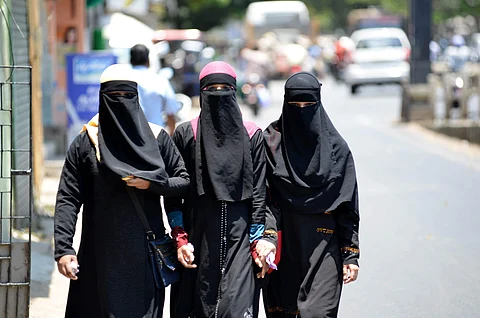

Due to the Taliban government's prohibition on female students, approximately 25% of Afghanistan's private universities are at risk of closing. Mohammad Karim Nasiri, a spokesman for the Private Universities' Union, stated that 35 institutions are facing this situation.
"Afghanistan has 140 private universities across 24 provinces with around a total of 200,000 students. Out of those, some 60,000-70,000 are women. The universities employ about 25,000 people. Closing the universities (to women) is both a spiritual and material blow," Nasiri said, as per a report by PTI.
"Male students have also been boycotting classes and exams in solidarity with their female counterparts. We boldly told authorities that, with this decision, the nation is going backwards. It is not a good situation, everyone is worried about this decision, whether they are teachers, students, or administrative staff," he added.
"Because of all the financial losses, private university owners told a senior Taliban official, Maulvi Abdul Kabir, and the union that they will have no choice but to close the schools and move their investments abroad if the decision is not reversed," Nasiri said further. "He did not indicate a timeframe for the closures. Most universities are currently on winter break. The Higher Education Ministry was not immediately available for comment," the spokesman added.
Last week, the Afghan government issued a ban on women attending universities. Days later, they also issued a directive prohibiting women from working at international and domestic non-governmental organizations, reportedly due to issues with the proper wearing of the hijab. In addition, women are now banned from visiting parks and gyms. These restrictions on women's freedoms come on top of already existing prohibitions on women working in most fields and the requirement for them to wear full-coverage clothing in public, as per PTI.
The recent bans on women have garnered widespread condemnation and sparked protests within Afghanistan. On Wednesday, December 28, the United Nations announced that some of its "time-critical" programmes in Afghanistan have been temporarily suspended due to a lack of female staff. The UN emphasised the crucial role that female staff play in their humanitarian efforts in the country, as they can access and serve certain populations in a way that male staff cannot, and they also ensure the safety of the communities they serve.
"Banning women from humanitarian work has immediate life-threatening consequences for all Afghans. This comes at a time when more than 28 million people in Afghanistan, including millions of women and children, require assistance to survive as the country grapples with the risk of famine conditions, economic decline, entrenched poverty and a brutal winter," the UN said in a statement.
However, Nida Mohammad Nadim, a minister for higher education in the Taliban government, has defended the recent restrictions on women. He argued that the ban on women attending universities is necessary to prevent the mixing of genders, and also stated that some subjects taught at these institutions violate Islamic and Afghan values, as mentioned in the PTI report.
